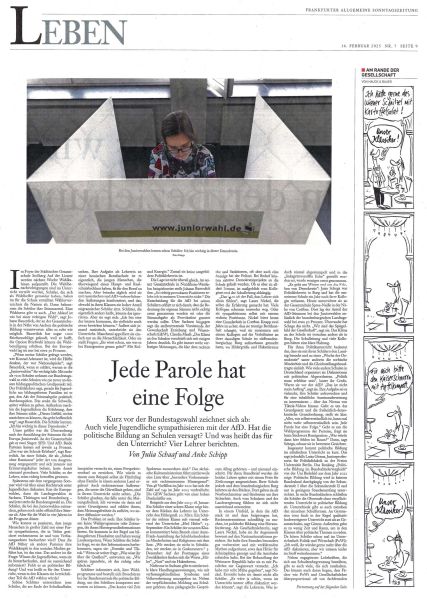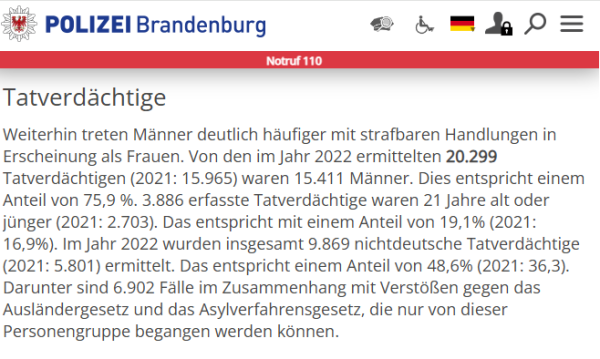Coaching Students on How to Vote
Coaching Students on How to Vote
The article "Jede Parole hat eine Folge" (Any political slogan can gain a following.) appeared in the Sunday edition of the Frankfurter Allgemeine newspaper on February 16th of this year, written by a pair of staff writers, Julia Schaaf and Anke Schipp. The authors report that high-school teachers in the former East Germany have concluded that, in political matters, their students simply parrot the opinions of their poorly-informed parents and their prejudiced media sources.
To acquaint their students with electoral procedures, and to get a sense of their political affiliation, the educational authorities in the cities of the former East Germany decided to hold mock elections. "Make it as real as possible," they told teachers at each high school, in anticipation of the students becoming registered voters, themselves. So, the students voted for the nation's political candidates in real-looking voting-booths, on paper ballots, which they deposited into a "Wahlurne", a traditional ballot-urn.
Germany has about six major political parties: From Left to Right, they are the Leftists (die Linke), the Socialists (SPD), the Free-Democrats (FDP), the Christian Democrats (CDU), and the Alternative for Germany (AfD). When the school-authorities counted up the students' ballots, they could hardly believe their eyes. In one high school, 24% of the students voted for the far-Right political party, the Alternative for Germany, or AfD. At another high school, 50% of the students voted for the AfD. The AfD takes stands on policy-issues that Americans will recognize as the talking-points of American President Donald Trump.
"How could such a thing happen in a liberal country like Germany?" the school officials asked: "That students, in such great numbers, would sympathize with a political party that expresses far-Right intentions concerns us. Even the nation's Constitutional Court has threatened to ban the AfD." A representative of the German Teachers' Union, the GEW, expressed her concern to the authors, namely that "The political environment has intensified, as the students' opinions have tended more to the Right," and "The opinions of the children at school reflect the opinions of the society at large."
So the authors asked her, "Does this mean that we should warn students against the intentions of the AfD?" The union official drew back and said "That's not a part of my job-description." She said she would rather the students visit the regional legislature, to acquaint them with the policy-making process.
However, the reader does pick up from the article the school-officials' fear and disdain for the AfD. They expressed their reaction to the mock-election as a "Schock-Erlebnis", a wake-up call. They described the AfD's public pronouncements as "rechtsextrem", extreme-Right, "rassistisch", racist, and Neo-Nazi.
Curiously, the school officials never mentioned the public pronouncements of the Linke Partei, the Leftist Party, which inherited the Communist mantle of the old East-German Socialist Unity Party, the SED, which shot people who tried to escape, that nationalized all private property, and basically ran the economy into the ground. East Germany did not suffer conquest at the hands of the Western Democracies; it bankrupted itself and could no longer provide for its people.
The article also does not mention that fundamental support for the AfD comes from average citizens who have experienced more crime from the immigrants and want greater reforms to Germany's immigration policy. The above-image shows the yearly crime-report from 2022 in the police registry of the province of Brandenburg. The total number of "Tatverdächtige" (criminal suspects) comes to 20,300. Of that total, the immigrants (or "Nichtdeutsche") account for 9,869, or 48% of the total. In some cities, residents avoiding walking in the street alone at night. Again, the "Jede Parole hat eine Folge" article does not mention any of this.


